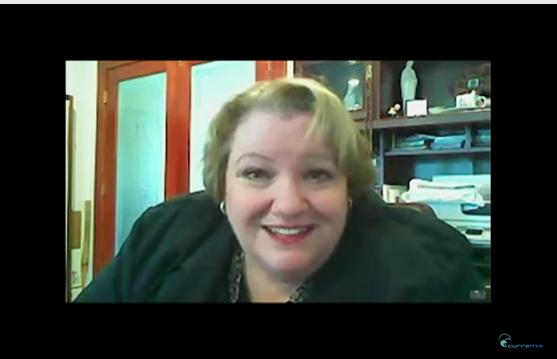Back on Wednesday, Pope Francis gave a particularly passionate and energetic sermon that got a lot of notice:
Turning to the Letter to the Romans, the Pope then affirmed that this feast is a “feast of unity.” He underlined the fact that all are invited, “the good and the bad.” And the first to be invited are the marginalized:
The Church is not the Church only for good people. Do we want to describe who belongs to the Church, to this feast? The sinners. All of us sinners are invited. At this point there is a community that has diverse gifts: one has the gift of prophecy, another of ministry, who teaching. . . We all have qualities and strengths. But each of us brings to the feast a common gift. Each of us is called to participate fully in the feast. Christian existence cannot be understood without this participation. ‘I go to the feast, but I don’t go beyond the antechamber, because I want to be only with the three or four people that I familiar with. . .’ You can’t do this in the Church! You either participate fully or you remain outside. You can’t pick and choose: the Church is for everyone, beginning with those I’ve already mentioned, the most marginalized. It is everyone’s Church
In a way unlike any pope in my memory, I’m seeing people really mulling over these papal homilies and taking them to heart. I’m still reeling from the conviction Francis handed me over the “dark joy of gossip.” In the face of this “church is for everyone” message, theology professor Greg Hillis found himself equally convicted, and moved to assess what marginalization meant — who the marginalized actually were. He ended up digging pretty deeply:
When I first read them, I rejoiced because I saw in them Pope Francis’ consistent call to us to welcome and embrace those who are on the margins of our society, and those who have been continually marginalized by our church.
However, a very insightful question by my next door neighbour (and friend) on my Facebook page led me to a more expansive, and challenging, understanding of the Pope’s exhortation. On Wednesday I favourably referenced an NCR article that argued that the bishops should disband the Archdiocese for the Military. . .I am a pacifist, and have long been troubled by implicit or explicit support of militarism in the church. I tend to be fairly passionate about this issue, and often critique what I view as militarism in a manner that lacks nuance or charity.
And so, after putting this NCR article on my Facebook page, I proceeded to write my little blog post about Pope Francis’ “It is everyone’s church!” homily. My friend perceptively made this comment about my blog post:
The reality is that I couldn’t push back on his question, because it was precisely the right question to ask . . .the answer cannot be that we shut doors in the faces of those who are invited to the feast, which is precisely what I was suggesting we do.
I’m very thankful for my friend’s comment. For the more I’ve thought about it, the more I’ve realized that, on a variety of issues and ideas, I have a tendency to want to marginalize those with whom I disagree theologically and/or politically. While I give lip service to the importance of diversity of expression in the church, the truth is that I frequently become so frustrated by those whose viewpoints I find troubling that I long for some way by which their voices would no longer be heard.
But, “It is everybody’s Church!”
Read the whole thing. This is a brave piece. It’s not an easy thing to admit: “yes, I’ve wanted to marginalize others; I’ve wanted to silence others; yes, I’ve wanted to narrow the scope of the church and who I think belongs within it; I’ve wanted to decide where Christ might be given access, and to whom.”
I give Hillis many props for his honesty. The feelings of superior understanding — and the instincts to guard the church from the inclusion of those other, awful people that he is confessing to — are neither new nor limited to “this side” or “that side”. They are all-too-common inclinations and they prompt the kind of uncharitable rhetoric we see being dished out all over the internet almost daily; people sneering at “rad trads!” from one direction and snarls about “church-of-nice quasi-heretics” coming from the other.
I wrote these mobbish mentalities way back in 2010, and have revisited the issue with some frequency since then, and it seems to me things have only gotten worse. I hadn’t thought about all of this, though, in terms of one-to-one, active attempts to marginalize each other, but in principle the reality is the same, and Hillis is correct. When we sit around deciding who the worthy, deserving good guys are, we give room for our inner bad guy to turn despot, all while knowing (as we should know) that no one is worthy; that God attends to worthiness in his own good time — all that is required of us is to be willing.
It doesn’t take a disfiguring disease or a debilitating stammer to make one an outcast; we all become outcasts when we are rejected by others for the differences in our thinking, and since we all do that to each other — all the time — the marginalizing deformity is ultimately within each one of us. Both sinful and sinned against, there really is nothing for it but to throw ourselves on the mercy of God and ask for what Solomon prayed for, too: an understanding heart.
Because it is everyone’s church, and we are all marginalized and marginalizing in turn, and in need of the perfect balance found in the cross.













